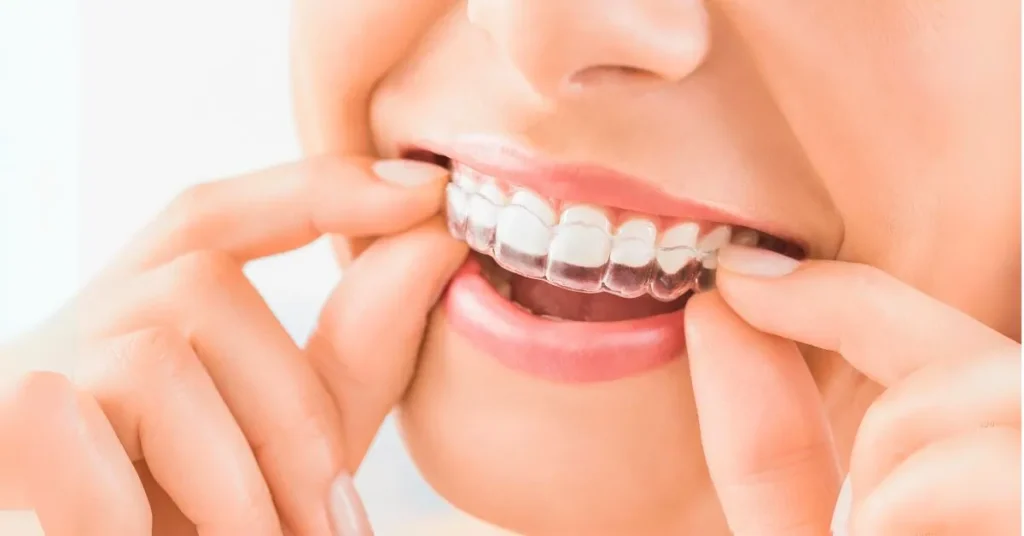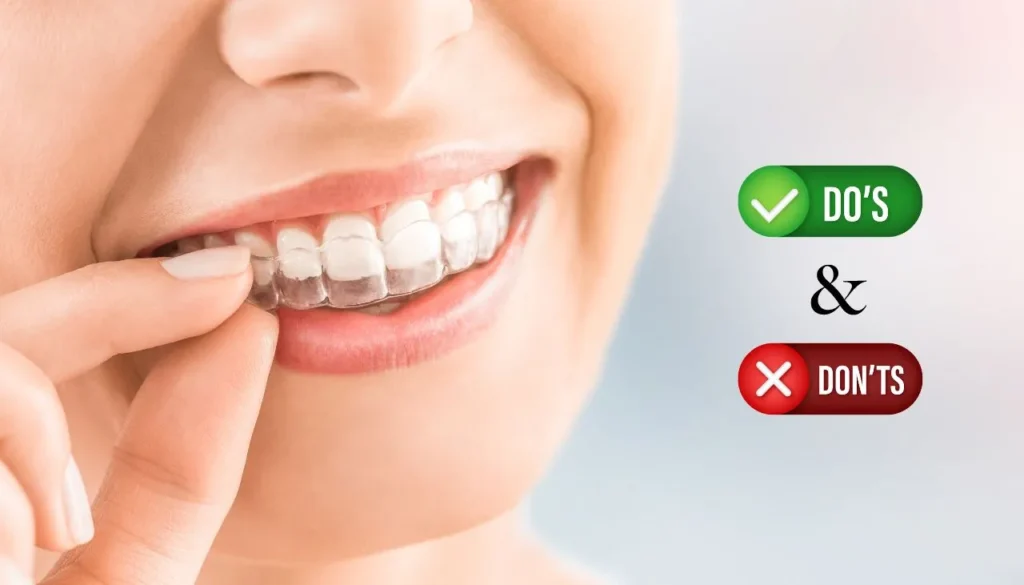Thumb sucking is a very natural phenomenon for children that begin from their mother’s womb. This is a comforting habit for your child that helps him fall asleep, but if it continues for long, it can lead to a number of teeth misalignment issues. So when to stop your child from thumb sucking and how you can fix this habit of your little one are all we are discussing here.
Thumb Sucking’s Impact on Oral Health
Thumb sucking is a common habit among babies, toddlers, and even school-age children. Basically, the habit lasts till the age of two or four. Prolonged thumb-sucking can be detrimental to your child’s oral health, which the parents must stop.
There are two main types of thumb-sucking: passive and active. Passive thumb sucking is when the child doesn’t actively suck on their thumb but rather holds it in their mouth.
Active thumb sucking is when the child sucks on their thumb actively. Both types of thumb-sucking can cause problems with the teeth and jaw, including misaligned teeth and even misaligned jaw.
These problems can be corrected with orthodontic treatment, but it is best to avoid them as early as possible. Thumb sucking can lead to jaw misalignment as well as the muscles in the jaw can become imbalanced, which can potentially lead to TMJ disorders or other issues with the jaw.
As per the British Orthodontic Society, if thumb sucking becomes a long-term habit, the impact on oral health can be severe and long-term.
Problems that can arise include:
- A crossbite
- An anterior open bite
- A deep bite
- A misshapen palette
- Even difficulty with chewing
Effects on Primary Teeth or Baby Teeth
Thumb sucking is an innocent and common habit among children, but it can have a major impact on children’s oral health. If your child sucks their thumb, you may notice that their teeth are not growing properly or that they have an overbite. Additionally, thumb-sucking can lead to gum disease and tooth decay as well.
If you are concerned about the impact thumb sucking is having on your child’s oral health, you should consult your dentist without being late. In some cases, a simple orthodontic appliance can be enough to help break the habit. However, if your child continues to suck their thumb despite your best efforts, they may need more intensive treatment.
Long-Term Effects on Permanent Teeth
Various dental experts worldwide have concluded that thumb-sucking, even after the age of five or more, can adversely affect oral health, causing permanent and long-term dental problems. Teeth and jaw misalignments like crossbite, deep bite, open bite, TMD, etc, are very common for such children as they grow older. Long-term issues such as speech impairment, irregularities in teeth, malocclusion, and intra-oral ulcers are also prevalent health issues they may suffer from in future as a result of thumb-sucking.
Potential consequences of persistent thumb sucking are given as details:
- Tooth Decay: Thumb sucking can lead to tooth decay, especially if your child sucks their thumb for long periods or if they suck their thumb frequently throughout the day.
- Misaligned Teeth: Thumb sucking can also cause teeth to become misaligned. If your child sucks their thumb excessively, they may need orthodontic treatment to correct the alignment of their teeth. Several teeth misalignment issues are:
- Overbite or deep bite: Protrusion of front teeth, in this condition the upper teeth excessively overlap the lower teeth.
- Other Bite Issues: Other bite issues, such as underbite, crossbite, and open bite, are aesthetically challenging and cause speech and bite issues, including several other discrepancies.
- Oral Infections: Thumb sucking can also put your child at risk for oral infections, such as thrush. Thrush is an infection of the mouth that can cause white patches to form on the tongue and inside of the cheeks. If left untreated, thrush can spread to other parts of the body and cause serious health problems.
- Jaw Shape Changes: Continuous sucking from early childhood affects the teeth and gum development of the child, also influencing an overall alignment of jaw and speech patterns.
- Sensitivity of the Roof of the Mouth.
Why Do Children Suck Their Thumbs?
It’s totally normal and safe for your child to suck on their thumb, depending on their age and the intensity of their habit. As your child is growing, putting objects and fingers in their mouth is a natural way to explore, integrate, and understand their world. Additionally, some children use thumb-sucking as a comfort source, while some may use stuffed animals or a blanket.
When Should Children Stop Sucking Their Thumbs?
It is recommended that children should stop this habit of thumb-sucking at around the age of five. If they continue this habit even after that, it affects their oral health. Parents can take the lead in preventing them from the habit of thumb-sucking or using any sort of pacifier.
Instead of punishing them, parents can strengthen healthy behaviours, like using a stuffed animal instead of thumb-sucking. As anyone who’s ever had a bad habit may realize, thumb-sucking can become habitual, and your child may not even realize that they’re doing it. Discouraging them with reminders can help draw their attention before they engage in the habit.
If you are not able to prevent them from continuous and vigorous thumb-sucking, it’s time to consult an expert dental professional nearby.
How to Prevent Thumb Sucking Habit in Your Child
Smart steps to help your kids prevent thumb-sucking are:
- Try replacing the thumb with a stuffed animal or a favourite toy.
- Keep their hands busy by playing with a kid’s instrument or with a toy.
- Avoid situations that may lead to your child’s stress, like shaming, criticizing, and scolding them for thumb-sucking.
- Reward your child or praise him for not sucking the thumb.
- Discourage the behaviour by putting a bandage on their thumb or covering their hand with a sock at night.
- If your child is old enough, communicate to them how thumb-sucking can negatively affect their oral health.
- Help your child reduce or manage their discomfort and stress.
When to Seek Professional Help
It’s important to observe the intensity and frequency of the habit to distinguish between normal and problematic thumb-sucking.
Normal thumb-sucking tends to be light and occasional and occurs primarily when the child seeks comfort or relaxation. It is problematic when you find the thumb sucking of your child is intense, frequent, and continues well without any specific reason or occasion. These can lead to early childhood oral discrepancies, including potential risks of several dental and speech issues, which may not be easily curable as adults.
Orthodontic Treatment for Thumb Sucking
There are a few methods of orthodontic treatments available for Thumb sucking.
Palatal Crib:
Among a range of oral appliances, the most effective is the palatal thumb crib that is placed on the upper palate. A thumb crib is designed to discourage thumb sucking by making it impossible for the child to use suction to create a seal between the thumb and the palate or back of the teeth. The force of this suction is a key factor in the impact that thumb sucking can have on the bite. Without the ability to create this suction, most children lose interest in trying to suck their thumb over time.
Retainer:
Some children will benefit from a simple habit retainer similar to what patients wear after their dental are removed. These retainers include more semicircular wires to discourage thumb-sucking.
Others:
For some children, the removable plastic appliance changes the feeling of having the thumb in the mouth just enough that they stop the habit.
Final Verdict
Initially seen as an innocent habit of children, the parents often ignore thumb-sucking. However, if continued till the age of five or more and with more vigorous symptoms, this habit may bring havoc to your oral health. Prolonged thumb sucking and using pacifiers are considered habits resulting in long-term and permanent dental misalignments along with other symptoms such as speech impairment, jaw misalignment, bite issues etc.
Early medical intervention is helpful in this scenario. Experienced orthodontists near you can efficiently and effectively treat such issues using various medical and psychological methods. It is advisable to visit your nearest personalized orthodontic care provider for a timely preventive remedy from future suffering.
FAQs
If your child is habitual to continuous and vigorous thumb-sucking till the age of five or more, it can cause permanent dental damage to an extent.
Pacifier usage is also not a healthy habit for children. If your child is habitual to thumb-sucking and/or pacifier use, visit your nearest orthodontist without wasting any time.
A consistent thumb sucking over the age of five or more is considered a problem.
Yes. Clear aligners are very effective in correcting teeth misalignments, bite issues, teeth gaps and other dental problems.
Many children stop sucking their thumbs on their own, often by age 6 or 7 months or between ages 2 and 4. But even a child who’s stopped sucking his or her thumb might go back to the behavior during times of stress.
References:
Thumbsucking by MouthHealthy
(2016 Jan 20) Breaking the Thumb Sucking Habit: When Compliance Is Essential

